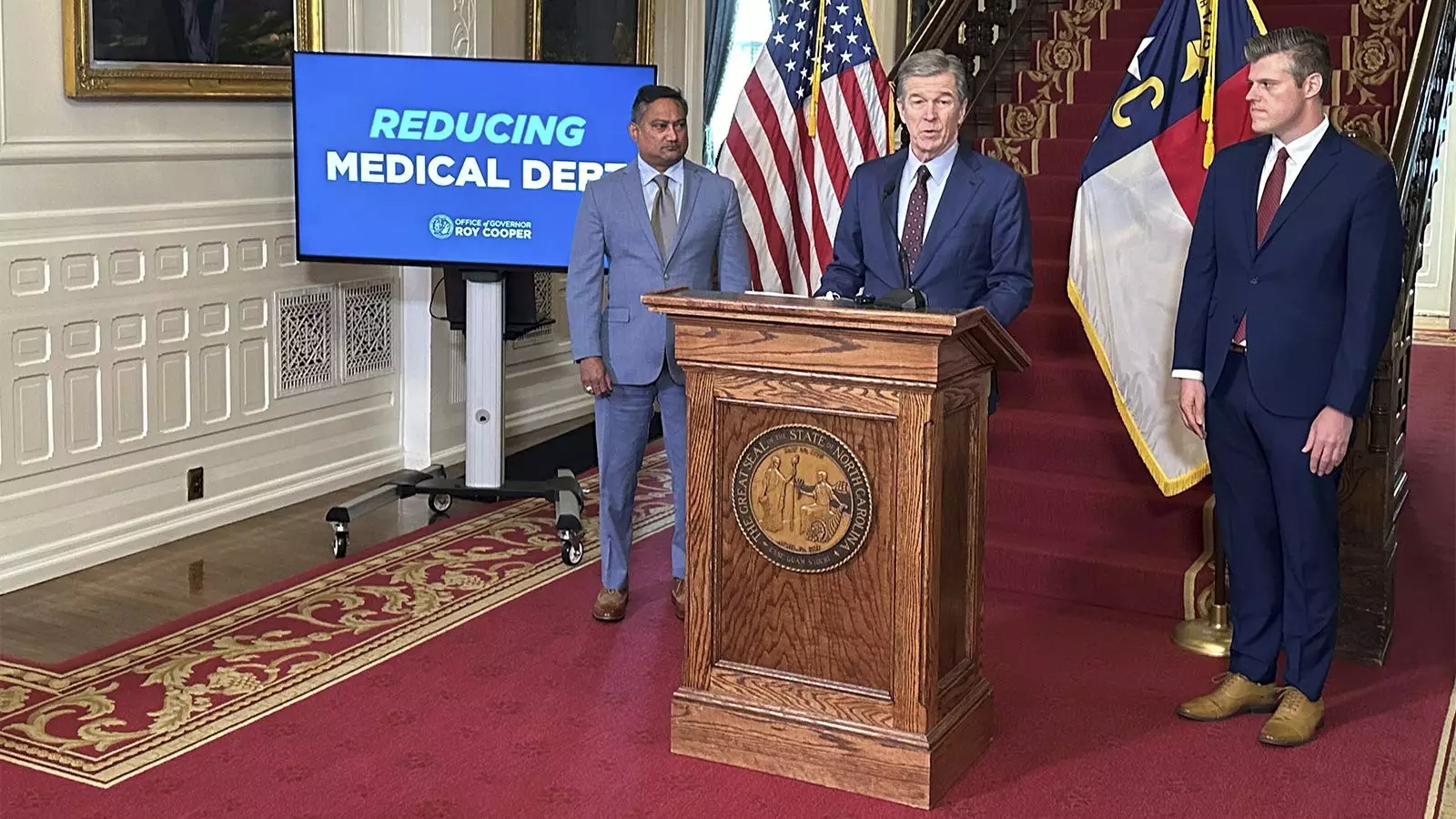North Carolina Governor Roy Cooper’s administration recently received approval from the Centers for Medicare & Medicaid Services (CMS) for a groundbreaking proposal aimed at providing financial incentives to hospitals in the state. The goal of this initiative is to help hospitals eliminate patients’ medical debt and implement policies that deter future liabilities.
Under this new program, hospitals will be encouraged to cancel debt held by low- and middle-income patients. The Department of Health and Human Services (DHHS) estimates that this initiative has the potential to assist 2 million individuals in the state in getting rid of $4 billion in medical debt. Additionally, hospitals participating in the program will receive enhanced Medicaid reimbursement payments through the Healthcare Access and Stabilization Program.
Hospitals that choose to take part in the program must agree to eliminate medical debt for current Medicaid enrollees dating back to early 2014. They must also forgive the debts of non-enrollees who fall below a certain income threshold or whose medical debt exceeds 5% of their annual income. Moving forward, participating hospitals will be required to offer significant discounts on medical bills to low- and middle-income patients.
When Governor Cooper first introduced this proposal, the North Carolina Healthcare Association expressed some hesitation and requested more time to review the details. However, some hospitals have engaged with state officials to provide feedback on how to implement the program effectively. While there have been mixed reactions from hospitals, many see the potential benefits of this debt relief initiative.
Debt relief under this program is expected to take place in 2025 and 2026. With Governor Cooper’s term ending in January, the fate of the program may hinge on the outcome of the upcoming gubernatorial election. Other states and local governments have utilized federal funds to assist residents in eliminating medical debt, showcasing a growing trend towards addressing financial burdens in healthcare.
Vice President Kamala Harris has expressed support for North Carolina’s efforts to provide medical debt relief. While the proposal did not specifically mention Governor Cooper, it aligns with the Biden administration’s initiatives to alleviate medical debt nationwide. Together, they have worked to forgive substantial amounts of medical debt and champion policies that prioritize the financial well-being of individuals and families.
Overall, North Carolina’s innovative approach to tackling medical debt represents a significant step towards supporting vulnerable populations and improving the financial sustainability of hospitals. By addressing the root causes of medical debt and offering assistance to those in need, this program has the potential to make a lasting impact on healthcare accessibility and affordability in the state.


Leave a Reply